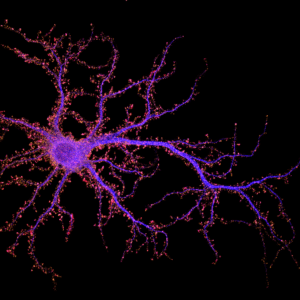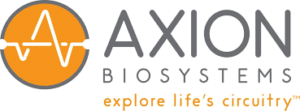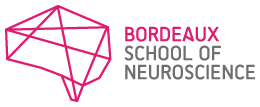Synapses are sites of information transfer and storage in the brain. These specialised structures integrate complex signals and undergo functional changes that underlie the formation of memories. Synaptic dysfunction is associated with early stages of neurodegenerative disorders such as Alzheimer’s disease, and underlies neurodevelopmental disorders such as autism spectrum disorders and intellectual disability.
Studying synapse function and plasticity is key to understanding brain circuits that underlie behaviour, and to identify synaptic malfunction mechanisms underpinning brain diseases. This course will allow students to integrate theoretical and methodological concepts on synapse biology with hands-on experience on state-of-the art imaging, functional and computational methodologies. The course provides an in-depth understanding to many concepts such as synapse formation and maintenance, pre- and postsynaptic mechanisms, structural and functional synaptic plasticity, synaptic integration in neuronal networks and synaptopathies. Hands-on experimental projects conducted in small groups with the support of senior scientists will expose the students to methodologies at the forefront of research in this field.
Course directors
- Ana Luisa Carvalho (CNC-Center for Neuroscience and Cell Biology, University of Coimbra, Portugal)
- Mathieu Letellier (IINS, University of Bordeaux, France)
- Hey-Kyoung Lee (The Zanvyl Krieger Mind/Brain Institute, The Johns Hopkins University, USA)
October 24 – 9:00am
Cécile Charrier (Institute of Biology, École Normale Supérieure, France)
Molecular mechanisms of synaptic development: insights from a human-specific gene.
October 24 – 11:00am
Brian Mac Cabe (EPFL, Lausanne, Swiss)
Unknown knowns of Drosophila synapses.
October 26 – 9:00am
Noa Lipstein (LeibnizFMP, Germany)
Synaptic transmission in health and disease.
October 26 – 11:00am
Julie Perroy (IGF, University of Montpellier, France)
Molecular dynamics at glutamatergic synapses and beyond.
October 28 – 9:00am
Josef Kittler (University College London, UK)
Molecular mechanism of inhibitory synapse formation and plasticity.
October 30 – 9:00am
Daniel Choquet (CNRS/University of Bordeaux, France)
Nanoscale synapse organization and function.
November 2 – 9:00am
Marina Mikhaylova (Humboldt University , Germany)
Calcium and synaptic heterogeneity.
November 3 – 9:00am
Alfredo Kirkwood (Johns Hopkins University, USA)
Principles of Hebbian, Pavlovian and Homeostatic synaptic plasticity.
November 3 – 11:00am
Rosa Paolicelli (University of Lausanne, Swiss)
Microglia: key players in synapse remodeling in the healthy and diseased brain.
November 6 – 9:00am
Juan Burrone (King’s College London, UK)
The emergence and plasticity of inhibitory synapses: from dendrites to the axon initial segment.
November 6 – 11:00am
Axion BioSystems : Presentation
November 7 – 9:00am
Nael Nadif Kasri (Radboud University Medical Center, Netherlands)
Leveraging spontaneous activity in human neuronal stem cell-derived neurons to model neurodevelopmental disorders.
November 9 – 9:00am
Christian Lohmann (Netherlands Institute for Neuroscience, Netherlands)
Imaging synapse development.
November 9 – 11:00am
Julijana Gjorgjieva (Max Planck Institute for Brain Research, Germany)
Emergence of organization and computations at the subcellular and cellular scales.
Exposure to central topics in synapse biology, and hands-on experience with exciting projects with innovative techniques.
The research in synapse biology holds a central place in Neuroscience, as it connects findings in molecular and cellular Neuroscience to the understanding of circuits and behaviour. In addition, synaptopathy is a major pathogenic mechanism in both neuropsychiatric and neurodegenerative disorders. The last decades have brought enormous advances in the methodologies used to study synapses, and which endow researchers with the possibility to bridge from the molecular analyses of synapses to cellular, circuits and behaviour approaches to tackle central questions about how the brain works.
This course provides the opportunity to learn from experts in the field about questions at the forefront of synapse biology, and to obtain hands-on experience with innovative techniques to study synapses. These include gene transfer, live imaging of proteins and signalling molecules (including in vivo 2 photon microscopy), superresolution microscopy for cellular imaging of proteins at excitatory and inhibitory synapses, electrophysiology, animal behaviour and computational methods.
- Whole cell patch clamp recordings in brain slices
- Patch-seq / RNAseq
- Co-culture synaptogenic assay
- Synaptic interactome analysis through proximity-dependent labeling
- Stereotaxic surgery with cannulae implantation
- Behavior analysis
- Confocal time-lapse imaging and FRAP measurements
- FLIM-FRET measurements for activity sensors
- Single-molecule tracking and PALM studies
- Direct stochastic optical reconstruction microscopy (dSTORM)
- hiPSC culturing and neuronal differentiation
- MEA recording: Axion Maestro Pro
- Two photon imaging
- Nanoscale organization of the synapse
- Superresolution microscopy in the analysis of transsynaptic interactions
- Interactome of synaptic cell-adhesion molecules
- Architectural and signalling dynamics at the inhibitory synapse
- Regulation of inhibitory synaptic transmission by wake-active neuromodulators
- Measuring spontaneous network activity of human iPSC-derived neurons using micro-electrode arrays
- Microglia-mediated synapse engulfment
- Membrane trafficking/endo/exocytosis
- In vivo imaging of boutons related to behavior
- Pharmacological modulation of fear extinction
- Mitochondrial dynamics and dendritic calcium imaging
- Multimodal profiling of synaptic connectivity through patch-seq

Keynote Speakers
Alfredo Kirkwood – Johns Hopkins University, USA
Brian D McCabe – EPFL, Lausanne, Switzerland
Cécile Charrier – Institute of Biology, École Normale Supérieure, France
Christian Lohmann – Netherlands Institute for Neuroscience, Netherlands
Daniel Choquet – IINS, University of Bordeaux, France
Joseph Kittler – University College London, UK
Juan Burrone – King’s College London, UK
Julie Perroy – IGF, University of Montpellier, France
Julijana Gjorgjieva – Max Planck Institute for Brain Research, Germany
Marina Mikhaylova – Humboldt Universität zu Berlin, Germany
Nael Nadif Kasri – Radboudumc Donders Institute for Brain, Cognition and Behaviour, Holland
Noa Lipstein – FMP-Berlin, Germany
Rosa Paolicelli – University of Lausanne, Switzerland
OUR SPONSOR

